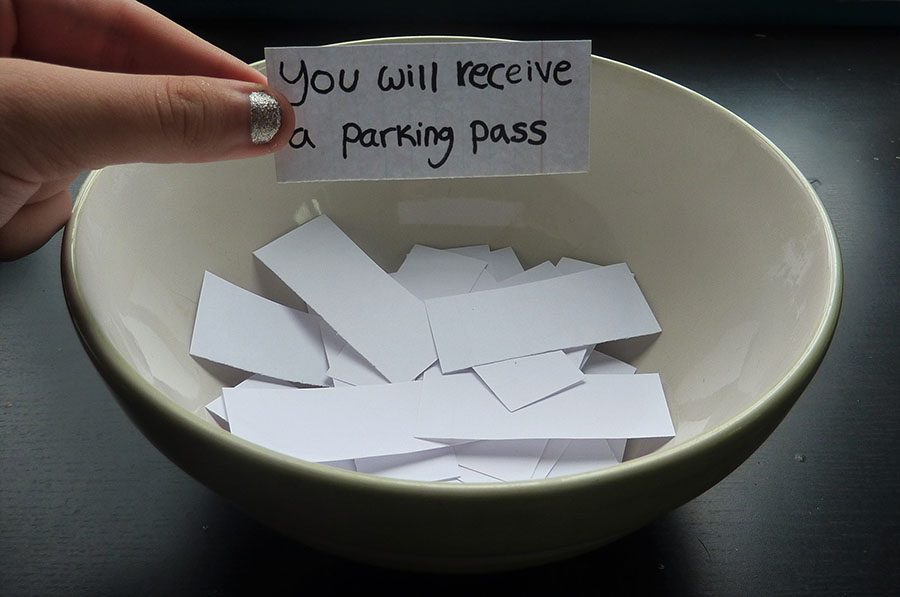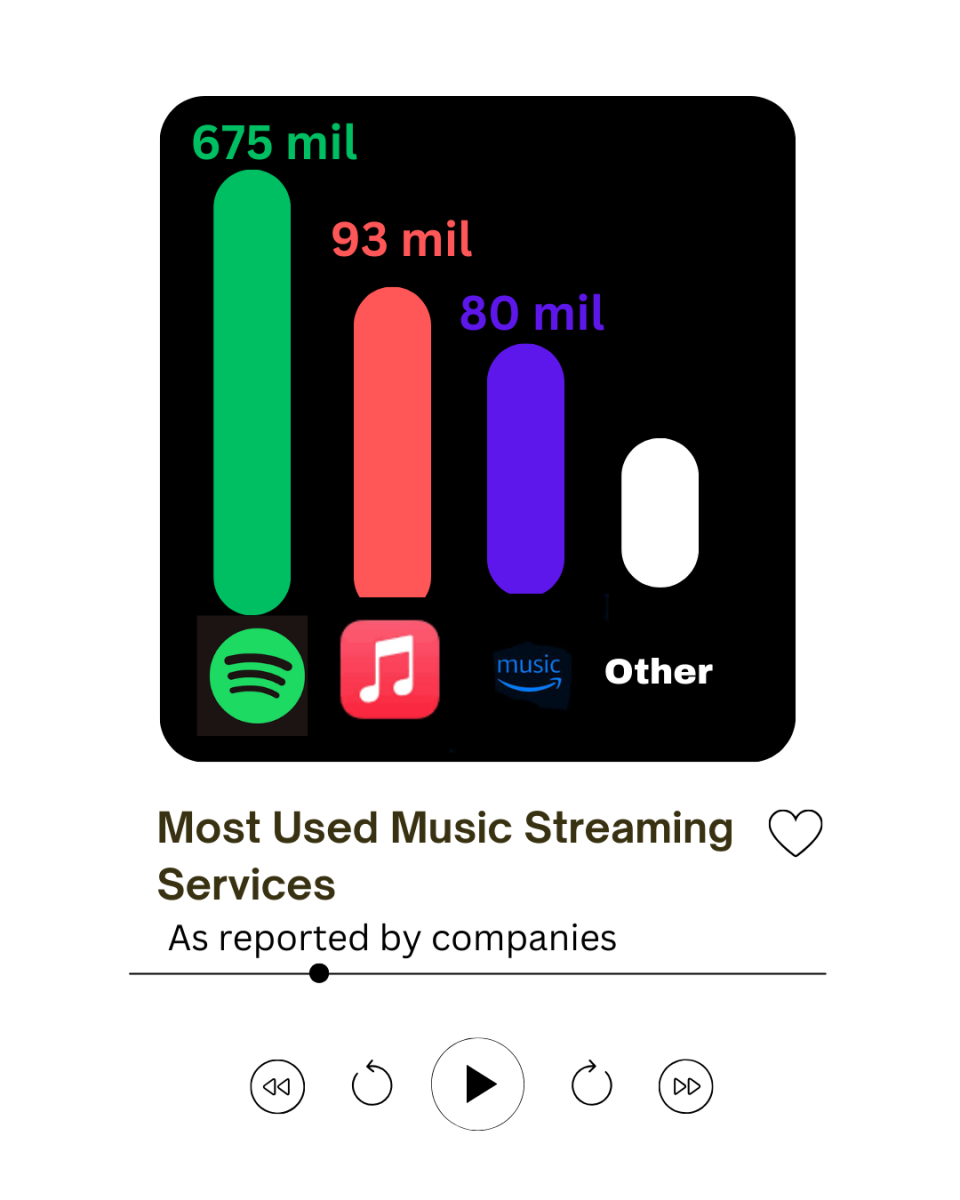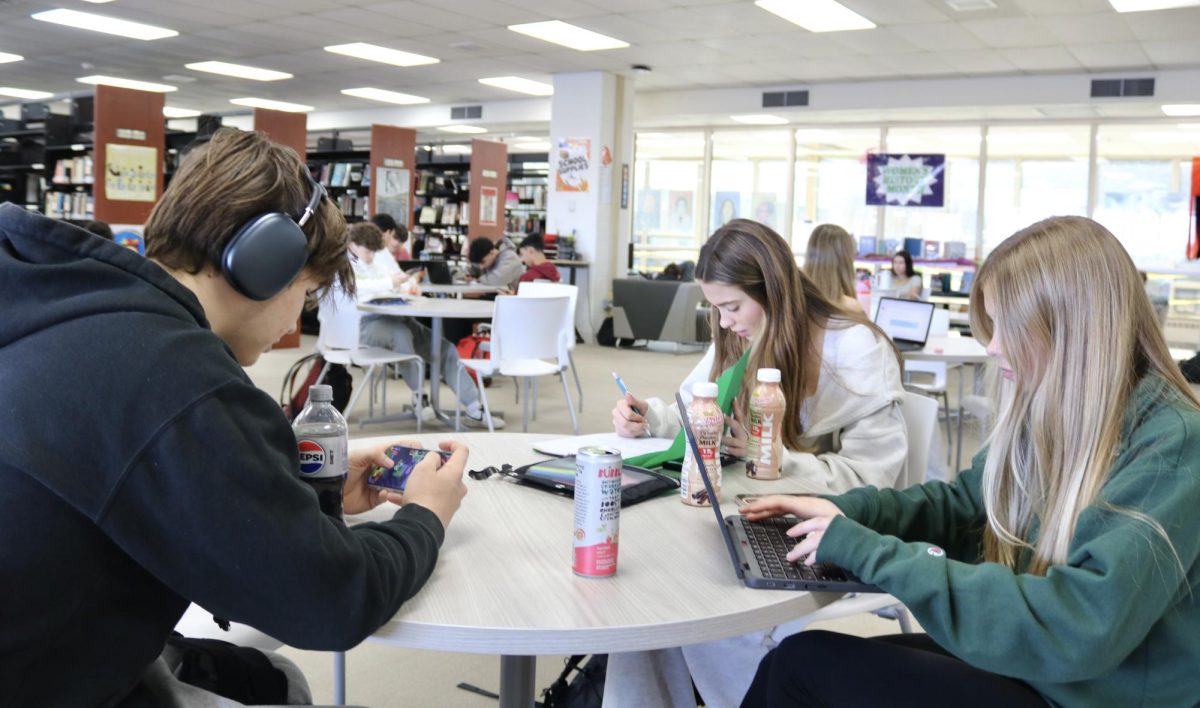After three years of bending over backward for complete tasks, struggling through classes, and getting shoved by upperclassman in the hallways, senior year has finally arrived, and with it, so many perks: lunch release, balloon fights, ditch days and more. But, one of the greatest, most-awaited benefits of senior year is the parking pass.
This tiny sticker on a windshield immediately amplifies the glory of senior year, chiefly for those who live farther away from school. Instead of walking to school from the secluded parking lots of Dymond or Brainerd, seniors can pull up in front and make it to their first class with ease. Instead of hanging around the school and trying to find something to do on their lunch hour, seniors can hop in their car and get out of the school. The parking permit adds the one thing that senior year needs: a little more freedom.
Unfortunately, there are 390 senior students who applied for a parking permit, but there are only 339 available spots to offer in the parking lot, meaning that some don’t have this much-awaited freedom, according to Mr. Uliks, the head of security. About 26 seniors, who are still on the waiting list for a parking pass, have to worry about whether there will be spots left at the remote parking lots or if they can find someone who will take them out during their lunch break. Neither are ever guaranteed.
The current system in place that decides which students gets to park on campus is a randomized lottery. This means that a student who lives within walking distance from the school has the same opportunity to win as someone who lives in Green Oaks or someone who has a million obligations to fulfill after school.
The current system ensures that the messy parts are left up to fate.
Nevertheless, sometimes fate does not factor many things into who gets a coveted spot and who does not, such as Early Bird classes, proximity to the school, or clubs and extracurriculars.
Thus, the system is bound to leave some people out. One of those individuals is senior Arthi Sekharan. Even though Sekharan lives in Green Oaks and has multiple clubs and sports after school, she is still forced to park off campus.
“I think it’s a little ridiculous that someone who lives five minutes [away] and can walk to the school can get a parking pass, but someone like me can’t get one and it takes me 10 minutes to drive to school in the morning. They can walk to the school faster than I can drive,” Sekharan said. “I just think that if you live within a certain radius, you don’t really need a parking pass.”
One of the main issues thus far with the lottery system is that it fails to accommodate people like Sekharan and offers parking passes to people who may take their proximity to the school for granted.
As a student who was on the waiting list, this issue hits close to home. When I walked to school for the first two weeks, I saw students drive around the corner and park in a spot that was only minutes from their front door. Although the “lottery system” doesn’t show a prominent bias, it doesn’t differentiate between seniors who want and seniors who need a parking pass.
The school could change this by simply asking for more information. When the school administrators send out the application for the parking pass, they should ask the student for their address and regular after school activities in order better regulate who gets a parking pass.
Of course, this will make the school’s job a little bit harder, but this system will separate those who need a spot from those apply because they are a senior and they can.















